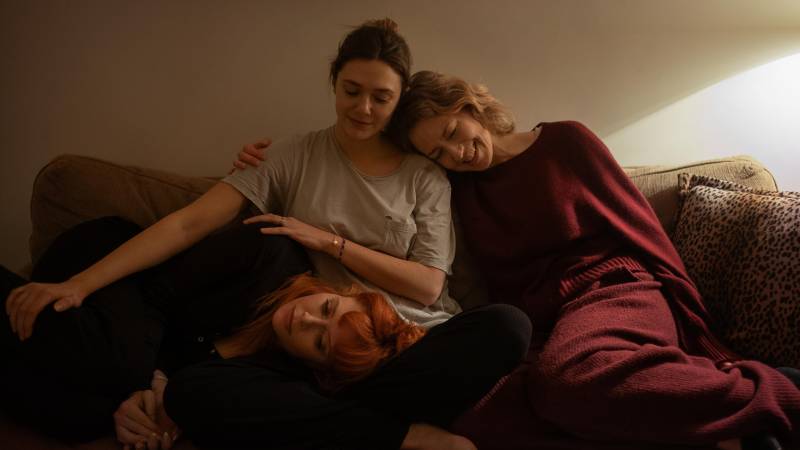What distinguishes His Three Daughters from so many movies of its type is that while it’s certainly talky, it never feels as if the characters are trying to explain themselves to you. Rather than coughing up large chunks of backstory, their interactions have the pull of honest, free-flowing conversation.
Much of the dialogue is taken up with the practical and wholly relatable end-of-life details: the difficulties of writing an obituary, or arranging a do-not-resuscitate order, or even dealing with a well-meaning but slightly exasperating hospice care worker. I haven’t seen many movies that so acutely understand the role food plays in a situation like this, where the act of cooking meals for your family or making sure there’s always fresh coffee can be both a drag and a welcome distraction.
Vincent himself is off-camera for most of the movie, sleeping quietly in his room, though Jacobs wisely gives him — and Jay O. Sanders, the actor playing him — a beautiful moment in the film’s last act.
The question hanging over His Three Daughters is whether the sisters will overcome their estrangement and remain family after Vincent’s gone. Jacobs doesn’t force a resolution, though he does end on a note of hard-won understanding that I found both optimistic and deeply affecting. He’s made a movie that, in the shadow of death, says something essential about how we live.
‘His Three Daughters’ is in movie theaters nationwide now. It begins streaming on Netflix on Sept. 20, 2024.


